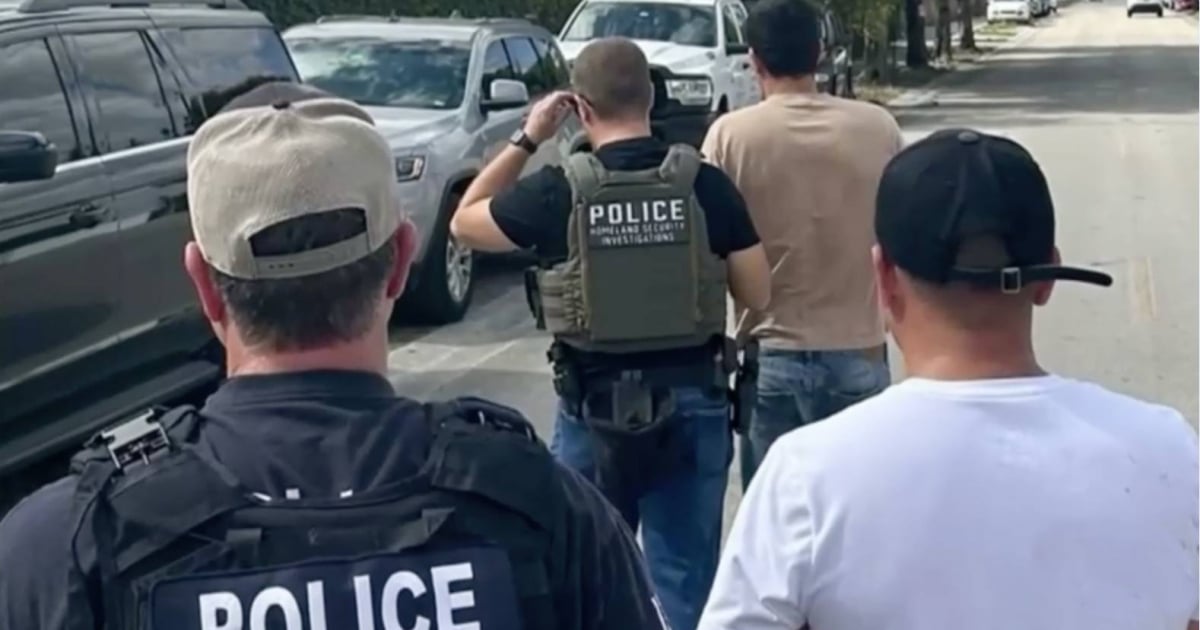Recent ICE operations in South Florida, a hallmark of Donald Trump's administration, have instilled a climate of fear among the immigrant community while impacting key sectors of the local economy. Since Trump took office on January 20th, the Immigration and Customs Enforcement (ICE) agency has ramped up its activities in the area, leading to increasing anxiety among undocumented immigrants. Many now live with the constant fear of being detained and deported, as reported by Local 10.
Although the government maintains that deportations target "violent criminals," the ripple effects of these policies have affected thousands of essential workers, according to affected business owners. The situation is particularly dire in regions like South Florida, where industries such as agriculture, construction, and healthcare heavily rely on immigrant labor.
Economic Impact on Essential Industries
The raids have significantly reduced the workforce. Rebeca Shi, Executive Director of the American Business Immigration Coalition, stated, "Essential workers have vanished, and we are seeing a 50% slowdown in our operations. Immigrants are paralyzed by fear and prefer to stay home," as cited by the publication.
The repercussions are not just social but economic. Key sectors like agriculture and home healthcare, which almost exclusively depend on immigrant labor, are facing severe challenges. In agriculture, for instance, the tomato industry in California and Florida struggles to find workers willing to take on these low-paying, physically demanding jobs. Tony DiMare of DiMare Fresh, a tomato producer, pointed out that "Americans are unwilling to work in these jobs, so we turn to immigrants, mostly under temporary programs. But it's becoming increasingly difficult to find workers with proper documentation."
Challenges in Healthcare and Wage Pressures
A similar pattern is evident in elder and patient care, where immigrants make up 80% of the workforce. Adam Lampert, CEO of a home care company in Texas, warned that deportations could lead to wage increases as a means to attract workers, potentially causing inflation in the sector.
The impact on immigrants' daily lives is devastating. In recent weeks, thousands of families have been forced to live with the constant anxiety of not knowing if their loved ones will be detained at any moment. According to the ICE office in Miami, the crackdown prioritizes criminals but may also detain individuals without criminal records who have deportation orders.
The Human Toll and Community Fear
The White House has made it clear that anyone without legal documentation is subject to deportation: "If you are a person, a foreigner who enters the United States of America illegally, you are, by definition, a criminal, and therefore, you are subject to deportation," stated White House spokeswoman Karoline Leavitt.
The undocumented worker community in South Florida is deeply affected by fear, and the long lines outside ICE offices are a tangible sign of the chaos and desperation these policies have generated. President Trump's rhetoric, labeling undocumented immigrants as "criminals," has led to an environment where even those who have been in the country for years, working and contributing to the economy, feel hunted and displaced.
Understanding the Impact of ICE Raids in South Florida
What are the effects of ICE raids on the local economy?
ICE raids have led to a significant reduction in the workforce, particularly affecting industries like agriculture and healthcare that rely heavily on immigrant labor. This has resulted in slower operations and potential economic challenges.
How do the raids affect undocumented immigrants in South Florida?
Undocumented immigrants in South Florida live in constant fear of detention and deportation, which impacts their daily lives and contributes to a climate of fear and uncertainty within the community.
